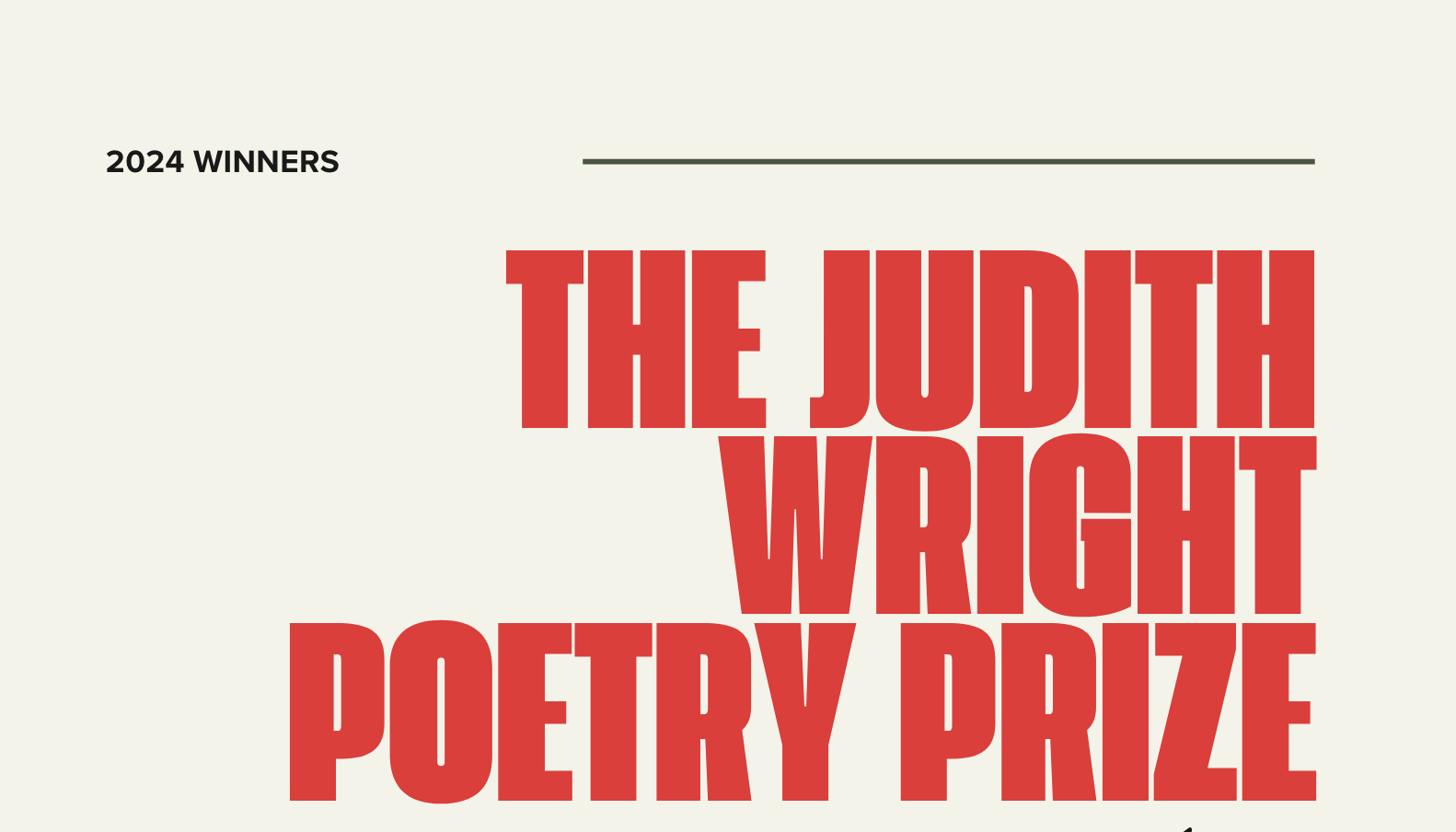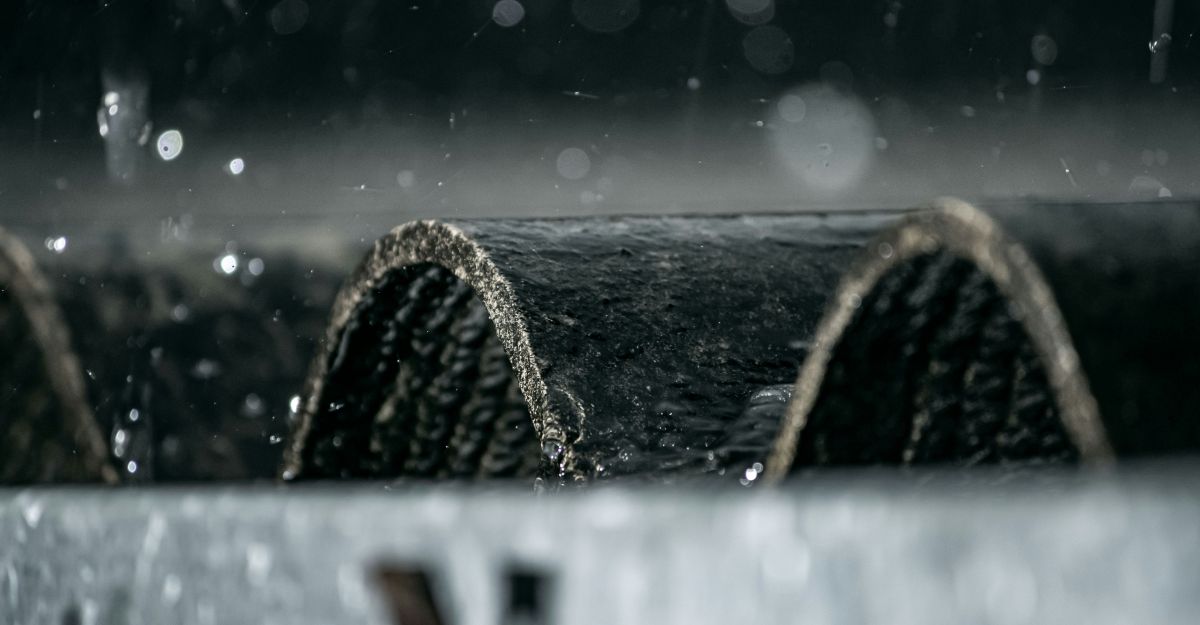Australia has a strong history of poetry, albeit largely white and male. Henry Lawson, Banjo Patterson, Adam Lindsay Gordon, CJ Dennis, AD Hope and Dorothea Mackellar are all notable figures in Australia’s colonial history and literature. Why is it, then, that poetry collections are largely ignored by our major literary prizes?
While there is no shortage of prizes for single poems – such as the Bruce Dawe and Peter Porter prizes – many of the prizes that award whole works lack a category for poetry collections by a single author.
The Western Australian Premier’s Book Awards does not have a category for poetry alone, although poets are eligible in categories such as emerging writer or children’s literature. Reneé Pettitt-Schipp, for example, won the emerging category in 2019 for her collection The Sky Runs Right Through Us, published by UWAP. The NSW Premier’s Literary Awards includes the Kenneth Slessor Prize for Poetry and the Victorian Premier’s Literary Awards includes a poetry category, as does the Prime Minister’s Literary Awards. The Northern Territory Literary Awards considers single poems, not published collections. The Adelaide Festival Awards for Literature includes the John Bray Poetry award, awarded every two years. The Tasmanian Premier’s Literary Prizes does not include a poetry category, nor do the three of the major prizes: the Miles Franklin, the Stella Prize, and the Australian Book Industry Awards.
The ABIAs are an industry award, not a literary award, with judges focused on how publishers and writers work together to bring successful books into the market. It is an award that considers expertise in how books are created, rather than literary merit. Poetry collections have been shortlisted in various categories of the awards such as the sun and her flowers by Rupi Kaur in International Book of the Year in 2018, and Blakwork by Alison Whittaker for Small Publishers’ Book of the Year in 2019.
While the inclusion of a poetry category in the ABIAs may be considered in the future, the near invisibility of poetry within the industry seems at odds with the ABIAs purpose. We have lost specialist poetry bookshop Collected Works; poetry collections are rarely reviewed in newspapers; University of Western Australian Publishing, a great champion for Australian poetry, is soon to close; and smaller poetry publishers lack the distribution networks of larger publishers, meaning they are less likely to be stocked in independent bookshops, relying instead on repeat customers trusting the quality of the publishing house.
Perhaps this is a self-perpetuating problem – perhaps poetry cannot be singled out in industry awards because it lacks the support to gain commercial visibility. With the ABIA winners not just known internally as excellence in the industry, but advertised and reported on in newspapers and online media, the addition of a poetry category could make a substantial difference to the position and reputation of poetry in Australia. ‘Perhaps it’s ‘chicken and egg,’ says Maxine Beneba Clarke. ‘Perhaps industry folk can underestimate how well poetry might be able to sell, with a decent campaign behind it,’.
While the ABIAs recognise industry excellence, other prizes focus on literary merit. The Miles Franklin only awards novels (or plays published in a book form, and film scripts, though this is rare). Perpetual Services, which administers the award, note that a verse novel is eligible ‘provided that its structure is largely narrative based’, though again this is rare. The Stella Prize has awarded the best fiction and nonfiction by women each year since 2013, and has recently included non-binary writers.
Novels and works of nonfiction are judged together – there are no two separate categories. This can present a challenge. Jaclyn Booton, Executive Director of the prize, notes that non-binary people and women of colour in particular often write at the edges of genre and experiment with form. It isn’t always simple to define a work as straight fiction or nonfiction, or even as a poetry collection (for example, even Alison Whittaker’s Blakwork contains longer prose fragments of memoir, as well as poems). The Stella Prize does currently consider verse novels (Lisa Jacobson’s The Sunlit Zone shortlisted in 2013 is the only example), as they contain a narrative arc in a similar manner to a whole work of fiction or nonfiction. Contemporary verse novels, however, often fall into young adult category, and therefore may not be eligible regardless. Poetry collections have been thought of as having less of a narrative arc when compared with fiction and nonfiction – and verse novels are regarded as being closer to fiction than poetry is.
While poetry collections might not tell a whole story in the same way that fiction or nonfiction works might, they are meticulously curated so as to present poems that ebb and breathe together, that have subtle beats even if not narrated by the same speaker, and that leave the reader feeling like they have read a whole work.
However, it is not so much a question of whether poetry contains an element of story, movements or beats that fiction and nonfiction inherently do, but instead of how to recognise excellence of all categories together. Booton and the Stella Prize recognise that writing, especially for women, is always a gradient of genre. Outstanding, original and engaging work – the criteria for the Stella – can be found in any genre in many different ways. What could be outstanding, original and excellent about a work might be its experimentation with form or genre. With this in mind, and the calibre of judges the Stella selects, it would be possible to judge fiction, nonfiction, poetry and hybrid forms of writing together as exemplary pieces of work in their own right.
When considering Stella’s purpose, Booton contemplates what opportunities already exist for women and nonbinary writers, and where they are underrepresented or face discrimination. In the literary awards that have a category for poetry, women tend to fare well. Winners of the last few editions of the Victorian Premier’s Prize for Poetry include Maxine Beneba Clarke, Bella Li, Kate Lilley and Charmaine Papertalk Green. Natalie Harkin, a Narungga poet, recently won the John Bray award, whose previous winners include Pam Brown and Lisa Jacbson. The Kenneth Slessor Prize awarded and shortlisted Joanne Burns, Zenobia Frost, Lisa Gorton, Bella Li and Judith Bishop.
By failing to recognise poetry in such literary awards, we are failing writers of colour, who often find their home in poetry. About the Stella Prize, Beneba Clarke says: ‘especially given there are many, many women of colour in Australia who only write poetry, how can you have a prize for women’s writing that specifically excludes the best work by women in the country?’ She continues, ‘Some of the greatest writers in Australia are First Nations writers and writers of colour who write predominantly poetry. It’s sad to think that poetic work produced by renowned authors such Ali Cobby Eckermann, Lionel Fogarty, Ouyang Yu, Samuel Wagan Watson, Eileen Chong and Alison Whittaker will never sit on the Stella Prize or Miles Franklin podium.’ Indigenous writers such as Tara June Winch, Tony Birch, Melissa Lucashenko and Alexis Wright have all found recognition in recent literary awards, and that, too, could be extended to those who primarily focus on poetry.
Filipino poet Eunice Andrada notes, too, that ‘writing and advocacy are inseparable in the arts practices of poets of colour.’ Poetry is part of something much larger – it isn’t simply playing with words for the sake of sounding beautiful, but a way of presenting being in the world, and of demanding that lived experience be taken seriously, of fighting. Andrada argues that literary journals that are led by black, Indigenous and people of colour are exciting spaces for their leadership, and ‘they prove that poets of colour no longer have to rely on white editors to legitimise their work.’ Poets of colour, either ineligible for prizes or pushed away from major literary journals do find recognition elsewhere. Ali Cobby Eckermann, a Yankunytjatjara/Kokatha poet, won the prestigious American Windham Campbell prize for poetry in 2017. Others create their own projects to bring together and amplify their voices; Fire Front: First Nations Poetry and Power Today edited by Alison Whittaker, and Solid Air: Australian and New Zealand Spoken Word edited by David Stavanger and Anne-Marie Te Whiu are two such examples that bring together emerging and established poets who mostly sit outside of prizes. Sweatshop, which brings together culturally and linguistically diverse writers in Western Sydney, has published two volumes of Sweatshop Women, which includes prose, poetry and art. Homeland Calling, edited by Ellen van Neerven, is a collection of Aboriginal and Torres Strait Islander poetry created from hip hop lyrics. Such collections, as anthologies, are of course ineligible for literary awards. Literary merit abounds in poets of colour, but with several major prizes overlooking poetry, talent is not recognised everywhere.
If we use current literary prizes as indicators of literary merit and as generators of reading lists, Australian poetry becomes a near-ghost, dancing around the edges of the industry and only sometimes allowed in. A future that truly celebrates and champions excellence in Australian poetry is something to fight for and look forward to.
Image: a detail from the cover of Maxine Beneba Clarke’s Carrying the World






